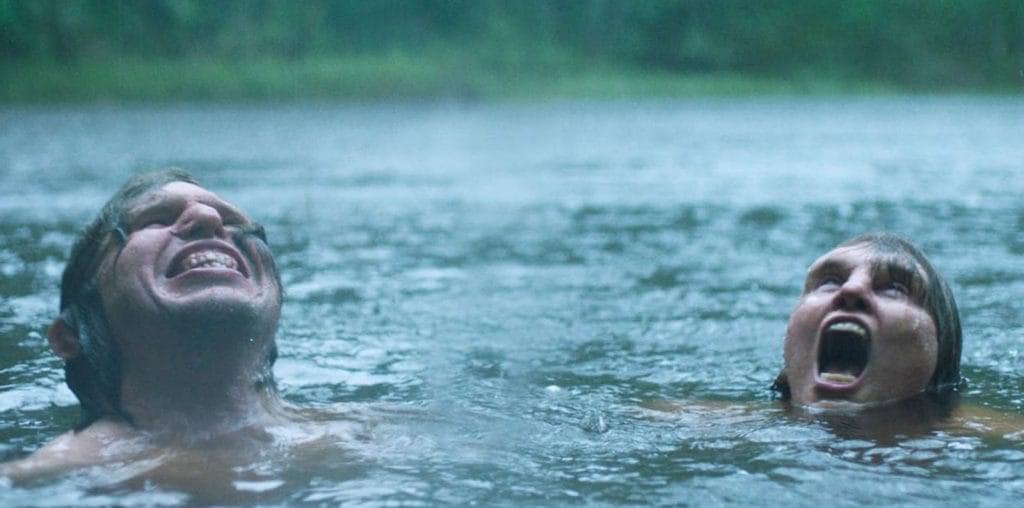
“Short Sentences” is the title of a 1932 play by Gertrude Stein, which consists of almost 600 sentences, most of which are around five words long. They range from the opaquely abstract (“She may call more own”) to the everyday (“It was of no use to ask”). Each sentence is assigned to a different character, with a different fanciful name such as “Beatrice Grand” or “Adam Beach.” Perhaps it is natural to think of doing this play on film, since the logistics of getting almost 600 actors on and off of a stage would be formidable.
Francesco Gagliardi spent 12 years making this film, by asking everyone he knew to say one of the sentences. He filmed them with a Super 8 camera, and recorded their voices with a simple tape recorder (often visible). He lived in Europe for most of this time, and so more than 90% of the performers are not native English speakers. The text appears in subtitles, which helps with their accents. Gagliardi only altered the play by leaving out some of the lines, and also omitting a small part for chorus.
The result is an absolutely delightful collection of people of every size, shape, gender, age, and personality type. For anyone who is a “people person” this film will provide ample pleasure. Somehow, the task which Gagliardi has set for his acquaintances (largely nonprofessional performers, although I did see a couple of experimental filmmakers), that of finding a way to say a very strange collection of words in a strange language, is a perfect task for people to inadvertently reveal a tremendous amount about who they are in just a few seconds.
It is interesting that most of the people, although they are not trained performers, specifically approach the task at hand as an acting task. Perhaps because Gagliardi is so clearly offering them a chance to be a “movie star” for a few seconds, most of them seem to decide that their task is to find a natural and believable way to say their sentence. They do it in an extremely intuitive, untrained way, which results in some marvelous performances and subtle, well-drawn characterizations. Of course, the struggle of these individuals to try and “perform” the line provides the drama of the film, and the complete failure of some of them is as interesting as the partial success and total success of the others. Wonderfully, Gagliardi often chooses to include the moments before and after someone says the line, and we learn a lot about a person by watching her attempt to “get into character” and then falling back out of character. The fact that most of the people are not native English speakers is a major plus: it allows them to approach the language as sound, feeling and rhythm, which is how Stein needs to be approached.
The film also functions as a diary film about Gagliardi’s life. It provides a portrait of his wide-ranging interest in people, as well as the fact that he seems relatively comfortable asking people of many different types to perform what may seem to them to be a very odd task. The variety of background settings makes the film a kind of travelogue.
The film also helps us to appreciate Stein’s play, revealing a text which seems totally abstract, yet consists mostly of sentences which are questions (“should she…”), wishes (“may they…”) and tiny, judgmental, socially-oriented microthoughts which probably form the chief content of most people’s moment-to-moment consciousness.
Gagliardi ends his film with an extended credit sequence, in which each performer is listed along with the name of the character which Stein assigns to his or her sentence. This is a great choice, because it allows the viewer to enjoy Stein’s interesting choices of names, it gives credit to the performers, and it accentuates the way in which Stein’s play presents to us an enormous collection of individuals. “Short Sentences” fuses the genres of the diary film, task-oriented performance art using nontrained performers, and abstract language, to create a sumptuous feast of human diversity.
